The Govt has violated Int’l agreements by filing action against Fonseka – Ranil
Amidst some attempts to sabotage the initiative by internal elements opposed to him, opposition leader Ranil Wickremesinghe last week took the lead in organising a massive demonstration in Colombo
against the continued incarceration of former army Commander General Fonseka, .
In parliament Last Tuesday the UNP leader removed his tie bearing the logo of the Commonwealth Parliamentary Association(CPA) as a mark of protest against the government for disallowing a statement under the Standing Order 23-II.
Local media reported that when Mr.Wickremesinghe rose to make his statement which contained matters relating to the imprisonment of General Fonseka, the Leader of the House Nimal Siripala Silva objected, pointing out that the statement referred to matters sub judice.
“A copy of Mr. Wickremesinghe’s statement has been sent to my office. I went through it. In certain paragraphs of the speech, Mr. Wickremesinghe has referred to some matters which come under sub judice law. There is a legal case mention. It is now lying with the Court of Appeal. We cannot debate matters pending before court,” he is quoted in the local media as saying.
When the UNP leader and veteran politician had agreed to omit such sentences if any, the offer was declined.
One newspaper reported that the Leader of the House, Chief Government Whip Dinesh Gunawardane and External Affairs
Minister Prof. G.L. Peiris had argued that as each sentence in Mr. Wickremesinghe’s statement were inter- linked, the statement could not be entrained even with the omission of controversial sentences.
They requested Mr. Ranil Wickremesinghe to redraft his statement and postpone its delivery giving the government time to reply.
On the morning of Thursday December 1, even though granted permission by President Rajapakse’s Brother and Speaker Chamal Rajapakse to make an amended special statement, Wickremesinghe refused, objecting to the manner in which the statement had been amended including that that it had not been signed by the Speaker and that some of the content deleted did not come under the sub judice rule.
It was reported that Nimal Siripala de Silva had advised the Opposition Leader to stick to it, as the government had prepared its reply in keeping with the amended statement.
However later on in the day, while participating in the committee stage debate of the Budget, Mr.Wickremesinghe had read out the amended statement.
Wickremasinghe queried as to why the Government rejected the recommendation by the Commonwealth Eminent Persons Group at the recently concluded Commonwealth Heads of Government meeting to appoint a Commissioner for Democracy, the Rule of law and Human Rights.
“Why does the Government want to oppose such a recommendation? If we are a functioning democracy where the rule of law and human rights are upheld then there is no need to oppose such a recommendation,” he said.
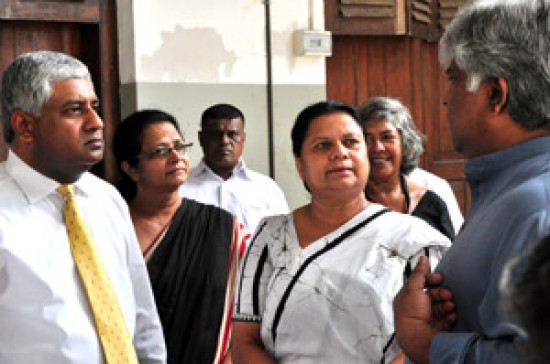
Lawyers filed an appeal in the White Flag case on behalf of General Fonseka on December 1, 2011. DNA MPs Tiran Alles and Arjuna Ranatunge seen here with Mrs Anoma Fonseka
With regard to General Fonseka, the UNP leader also pointed out that if any candidate of any election, provincial, parliamentary or presidential is persecuted under emergency regulations which have no application to an election, then it is a violation of obligation of the state under the Universal Declaration of Human Rights as well as the International Covenant on Civil and Political Rights (ICCPR).
External Affairs Minister G.L.Peiris had said that more than 50 countries, along with Sri Lanka, opposed the move to appoint such a HR Commissioner.
Last week a letter was tabled in parliament confirming that dumped ballot papers marked in favour of General Fonseka were genuine. Former Examiner of Questioned Documents (EQD) P.H. Manatunga confirmed that the 62 ballot papers which were marked for common opposition candidate Sarath Fonseka at the last presidential election and found dumped near the Ratnapura Technical College were originals though the government had failed to conduct an impartial inquiry into the incident.
The letter was tabled by United National Party (UNP) Deputy Leader Karu Jayasuriya at the committee stage of the budget debate. Mr. Jayasuriya, referring to the letter had said Mr. Manatunga who was now retired had confirmed that these were original ballot papers though the government initially denied it.
Meanwhile lawyers filed an appeal in the White Flag case on behalf of former army chief Sarath Fonseka last Thursday.(December 1). Attorney at law Nilanthi Peiris on behalf of Paul Ratnayake Associates handed over the papers to the High Court Registrar. The appeal will be taken up by the Supreme Court. Mrs. Anoma Fonseka and Democratic National Alliance MPs, Arjuna Ranatunga and Tiran Alles were among those present at Hulftsdorp to file the appeal.
General Fonseka was sentenced by the High court trial-at-bar presided over by Judge Deepani Wijesundara for a three year term after he was found guilty for creating public disaffection by making a false statement to a small local newspaper.
Below we publish in full the unedited version of the Statement Opposition Leader Ranil Wickremesinghe was to make to parliament, including the offending sentences objected to by the government. The amended Statement finally read out in parliament Thursday is reproduced in full elsewhere on this website.
Matter to be raised by Hon. Ranil Wickremesinghe, Leader of the Opposition under Standing Order 23(2) on 29.11.2011
1. Sri Lanka is a party to the Universal Declaration of Human Rights as well as the International Covenant on Civil and Political Rights and is obliged to uphold these agreements. The government has contravened these obligations by filing action against Gen. Sarath Fonseka and calling for his conviction under Regulation 21 of Emergency (Miscellaneous Provisions and Powers) Regulation 1 of 2005. I do not intend to deal with the facts of the case except to say that Gen.
Fonseka has been convicted by a Trial at Bar in which one High Court Judge dissented. An appeal has been filed against this verdict. The facts related to this case are not directly relevant to the issue which I wish to raise in Parliament. But I seek a clarification from the Government regarding its commitment to uphold these two agreements.
2. In the case of Nicaragua vs. USA, the International Court of Justice held that national electoral systems are a matter of domestic policy provided these do not violate any obligations of international law. These international obligations are contained in the two agreements I mentioned above.
Article 21 of the Universal Declaration on Human Rights specifies that the will of the people shall be expressed in periodic and genuine elections. This is further elaborated in Article 25 of the ICCPR which states “that every citizen shall have the right and the opportunity to be elected at genuine and periodic elections”. All the state parties to these two agreements (including Sri Lanka) are obliged to uphold these provisions.
3. The Inter Parliamentary Union Council of which we are members adopted at its 154th Session the following criteria for free and fair elections:
“3. Candidature, Party and Campaign Rights and Responsibilities
(1) Everyone shall have an equal opportunity to become a candidate for election.
(5) The right of candidates to security with respect to their lives and property shall be recognized and protected.”
As a follow up to these Declarations, the IPU also issued the publication titled “Free and Fair Elections” – Second Edition edited by Guy S Goodwin-Gill. Referring to International Standards it states:
“Fundamental human rights, for example, to hold and express opinions, to receive and share information, as well as freedom of movement, association and assembly, all give specific content to, and thus limit, the choices open to states in the regulation of an electoral campaign.
4. We, in Sri Lanka, have, until now, upheld these obligations. The Presidential Elections of 1988 was held in the midst of
internal armed conflicts both in the North and in the South. It was agreed by all parties that Emergency Regulations should be restricted to matters of public security and the election would be conducted under the election laws. This practice was followed at subsequent elections. During the Presidential Elections of 1998 when the LTTE attempted to assassinate President Chandrika Kumaranatunga, the Emergency Regulations were applied only in respect of inquiries into the alleged assassination. This is because our Constitution is based on the sovereignty of the people which incorporates fundamental rights and universal franchise. Article 4 (d) further enumerates the requirements for all organs of the Government to respect and secure the fundamental rights. This includes freedom of speech and expression referred to in Article 14 (1) (a) which is an essential ingredient of free and fair election. The right to franchise is enshrined in Article 4 (e).
5. Under the Constitution the President may at any time after the expiration of four years from the commencement of his first term of office appeal to the people for a mandate to hold office for a further term. This is provided in Article 31 (3a)(a)(i) which enables the holding of a Presidential Election. Any persons challenging the incumbent President at this election also challenges his record and reputation during his tenure of office. Thereby the President calls upon the electorate to pass judgment on his record and reputation. Therefore the campaign strategy at any modern Presidential Election is based on reputation management. During the earlier two elections under Article 31 (3a)(a)(i) it was customary to make allegations both well founded or unproven against the incumbent President. The incumbent President in turn sought to demolish the reputation of the challenger. This is the same practice that was followed at any election, even prior to Presidential Elections. I myself have been at the receiving end of unfounded allegations in 1994 and 2004 when I was the incumbent Prime Minister. Traitor, betraying the country, race and religion were amongst the many allegations which I had to face during the Parliamentary Elections of 2004 and the Presidential Election of 2005.
6. The right to free and fair elections is conferred by Articles 3, 4, 14, 31 and 154(G)(7) of the Constitution. This right cannot be superseded by emergency regulations which are made by the President under Article 155 (1). They are not an exercise in legislative power. On the other hand, the power to make legislation is exercised by Parliament and by the people at a referendum. But a regulation is a rule of order which seeks to give legal effect to the primary legislation, the Public Security Ordinance.
Now under Part II of the Public Security Ordinance, the President may make emergency regulations in accordance with Section 5 where it appears to him to be necessary or expedient in the interest of public security and the preservation of public order and the suppression of mutiny, riot or civil commotion, or for the maintenance of supplies and services essential to the life of the community.
Article 155 (2) specifically states that a regulation cannot override amend or suspend the provisions of the Constitution. Then emergency regulations cannot in any way be utilized to abrogate the right of a Presidential Candidate to keep the electorate informed during an election campaign. To interfere with such a right amounts to infringing the right to free and fair elections.
7. Article 4 of the ICCPR states that emergency regulations may only permit state parties to derogate from their obligations under the present Covenant to an extent that is strictly required by the exigencies of a situation provided that such measures are not inconsistent with their other obligations under international law.
Furthermore, a restriction on fundamental rights contained in Article 15 cannot take away the sovereignty of the people including the right of franchise and free and fair elections guaranteed by Article 3 (4), 31(3a)(a)(i) of the Constitution. The criteria laid down by the Inter-Parliamentary Union also specifies under 3(7) the rights as follows:
“3 (7) The above rights may only be subject to such restrictions of an exceptional nature which are in accordance with law and reasonably necessary in a democratic society provided they are consistent with States’ obligations under international law.
Presenting the Emergency Regulations in Parliament on 09 December 2009, then Prime Minister Ratnasiri Wickramanayake gave the following reasons to bring these Regulations into operation.
– Meeting immediate threats from the remnants of the LTTE
– Replace the displaced persons in the Vanni
– To recover ships, arms and other assets of the LTTE.
Then according to the obligations under the ICCPR the Emergency Regulations in question has to be limited to the exigencies mentioned in the speech of the Prime Minister Ratnasiri Wickramanayake. It cannot in any event apply to acts done in connection with the Presidential Elections. To go outside the exigencies mentioned above is to violate the provisions of the ICCPR and the Human Rights Declaration. Accordingly, the statements attributed to General Fonseka in an interview given by him as a Presidential candidate does not fall within the ambit of Emergency Regulations. Any prosecution under the Emergency Regulations on such an alleged statement is a violation of the obligations under the universal Declaration of Human Rights and ICCPR.
8. In such a background I would ask the incumbent Prime Minister to explain to the House whether the Government will continue to uphold these obligations or withdraw from these international agreements? Furthermore, if the Government is desirous of upholding these obligations will it take appropriate measures to apply to Court and take necessary measures to set aside the prosecution and the judgment given therein?
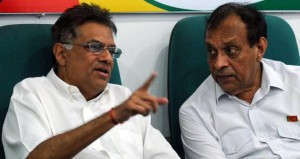
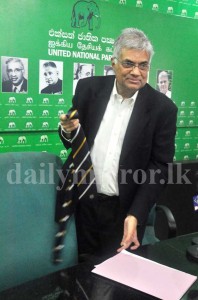
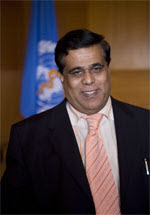
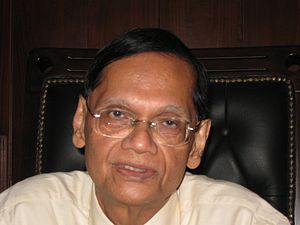
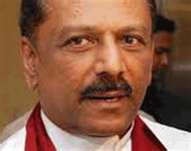

December 3, 2011 at 2:04 pm
[…] statement was objected to by the government. The full unedited version of his statement can be read here. Share […]